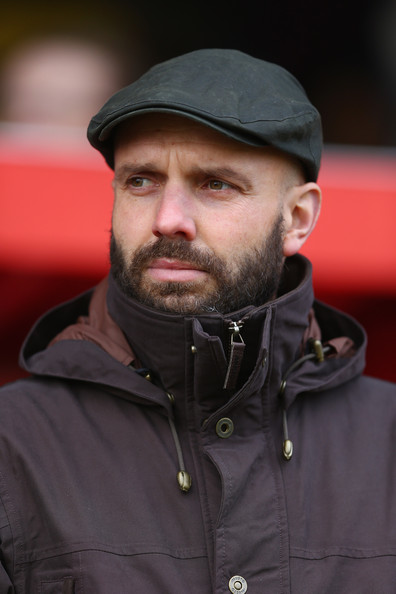This week our resident Walsall fan and Columnist, Darren Young, takes a look at whether giving a manager a bit of time might not be a bad idea after all…
 Is instant Gratification too Long To Wait These Days?
Is instant Gratification too Long To Wait These Days?
So this Saturday proved to be a Black Saturday for football mangers as three of them lost their jobs after their teams poor start to the season got even poorer.
A quick check on a poll on my club, Walsall’s website reveals that 66% of the respondents want us to join fellow Midlands clubs, Birmingham City, Port Vale and Chesterfield in searching for yet another new manager. Someone, jokingly I think, suggested a job share scenario where the current manager (and I have to keep checking the sports websites just in case) only does home matches and the previous one the away games. It might not be a million miles away from where we are headed in football, but that’s another article. The point is, managers don’t have much time to win people over these days.
Our previous manager, Dean Smith, was given plenty and built a team over four or five years that was often favourites for relegation but went to Wembley and then third place in successive seasons (the last of which saw him lured to a club in a higher league). Earlier in his ‘reign’ he went sixteen games without a win and got knocked out the cup by non-league sides. At home. How many clubs would allow that these days?
At this moment, for EFL clubs, we are eight games in. But that feels like a lifetime after Crystal Palace needed only half of that number to decide that their summer pursuit and appointment of Frank De Boer was, after all, a mistake.
As I finish this article on Monday morning, I have just heard them discussing the ‘next manager to be sacked’ betting odds on the radio. Apart from the distasteful aspect of talking about someone’s livelihood as if it were entertainment (FDB might be adequately compensated after his dismissal; Harry Redknapp will save a fortune in petrol alone but will Gary Caldwell and Michael Brown get such a lucrative send-off? Or find it easy to find new employment?) they also mentioned Roy Hodgson as a potential next one out if they suffer more defeats in their next four matches (Manchester City and then United away, Chelsea at home then Newcastle away).

New to Selhurst Park this season!
So if the new manager at Palace loses to the top four teams as it currently stands then he is also in danger of the sack? Should they just install revolving doors at Selhurst Park? And have we really reached that stage?
I’ve got mixed views on Hodgson. He did OK with England but will be forever tainted by what happened in his final match. But when he starts saying ‘it’s a 34-game season’ it worries me. It’s not, it’s a 38 game one and you’ve lost the first five – the other clubs aren’t going to give up their points. But the talk is of a survival battle after just five games? When did four or five, or even eight matches without a great start become a survival battle?
No one knows what will happen in a few games. But a lot can.
In very recent memory, Leicester survived after being marooned at the bottom in April. Barnsley went from the bottom of League One in November to the Championship by late May. Palace themselves did the same a few years ago when Iain Dowie took them from the lower reaches of the Championship to promotion via the play offs with an inspired run.
Three wins on the bounce can change a season completely.
With the right set of results around them, Palace could be in the top half by the time they go to Newcastle. I’m sure they won’t be, but you never know. What we’ll definitely never know is if Frank De Boer would have achieved it if his methods had started to bear fruit and the crippling injury list began to clear up.
Similary, Chesterfield and Port Vale – who currently occupy the two bottom places in League Two – could also be in a very different position with three wins and their fixtures aren’t anywhere near as daunting as Palace’s.
But patience is a very rare commodity in football these days.
I can’t decide if it’s media driven or fan driven either. Not only is Roy Hodgson being given odds to keep his job after one game but I also listened to the commentary on De Boer’s last game at Burnley. The commentator seemed to be a on a one-man mission to see the manager out of a job; mentioning his, the stats and his precarious position in almost every sentence. I know TV and radio have to fill a lot of broadcasting hours these days but this was less vultures circling and more picking at the carcass while it was still alive.
I wondered if the commentator would appreciate the same kind of scrutiny about his performance and job prospects.
‘And Jim Proudfoot keeps going on about Frank De Boer instead of telling us about the match. I wonder if he’ll still have his job tomorrow if he carries on like this?’
But of course, in the same way we don’t band people’s job security and salaries around as if they are of public interest in any other walk of life (except the BBC), we wouldn’t talk about someone’s job – while they were still in it – as if they weren’t a real person, anywhere else but in football. And maybe politics.
It’s one of those modern football things, like half and half scarves and not being allowed to do overhead kicks. We view football, and our clubs especially, through a prism of the manager’s position. If we win, he’s safe for now, if we lose he’s gotta go. If we concede a corner or a player misplaces a pass we boo in the general direction of the man in the technical area because it must be his fault.
Thus, if we lose a few games, the manager is solely to blame. The players, as we always hear, are too numerous and well paid to get rid of and the owners, chairman and boards who preside over the managerial appointments in the first place never take responsibility for the failure; mainly because they have (and we all have) a ready-made, perfect fall guy in place.
As fans, and I’m generalising of course, who want managers out (rightly or wrongly because I’m not really questioning that) are we in danger of falling into the same kind of trap the media has; one where we are baying for blood after the slightest downturn in fortunes?
We live in a world where we want instant gratification but is it all it’s cracked up to be? What happened to the chase being as satisfying as the catch? And would – or should – we view longer-term building of success as every bit as good as a freak season or one-off miracle?
I know that every now and again, a team chops and changes their managers during a season and it works (Watford spring to mind when they were promoted to the PL) but this is very much an exception to the rule.
Most have little success in the short or long term. Off the top of my head, I can name Sunderland, Leyton Orient, Aston Villa, Birmingham City, Derby County, Hull, Norwich, Wolves, Charlton, Rotherham, Wigan, Coventry and Notts County as clubs that have had a lot of managers in a few years and not seen a great deal of change in fortunes. And there will be quite a few I’ve missed from that list.
On the other hand, clubs that have took a longer-term view of things and shown patience and given support with managers through thinner periods are smaller in numbers but have benefitted from it. Bournemouth and Burnley have both had their current manager since 2012 for instance. Of course, Bournemouth have started nearly as badly as Crystal Palace so expect a ‘HOWE OUT’ banner any day now!

Paul Tisdale, the face of stability at Exeter City
In the current Championship, only Mick McCarthy has enjoyed as long a tenure and some Ipswich fans wanted him out before this season’s excellent start.
Across the lower divisions, there are only a handful of managers who have been afforded time to build, with Exeter being the best example. Does anyone happen to know how they are doing this season?
Apart from the elite and their billions, other clubs shouldn’t turn up their noses at some stability and season-on-season improvement. Not every club can win everything, every season because no-one does and no-one can. There will only ever be four league champions and seven promoted clubs in any given season. Eighty-one teams will either not go up or even get relegated.
So the real question. By changing manager all the time, do we increase our chances of eventual success? Or do we put the brakes on it in favour of a ‘dead-cat-bounce’? Only hindsight will afford us the answer and then it only tells us half the story.
For now, I’m going to say that the longer-term view, whilst rare, is the better option for the vast majority of clubs when otherwise, the revolving door policy will leave the club, and fans, just going round in circles.


